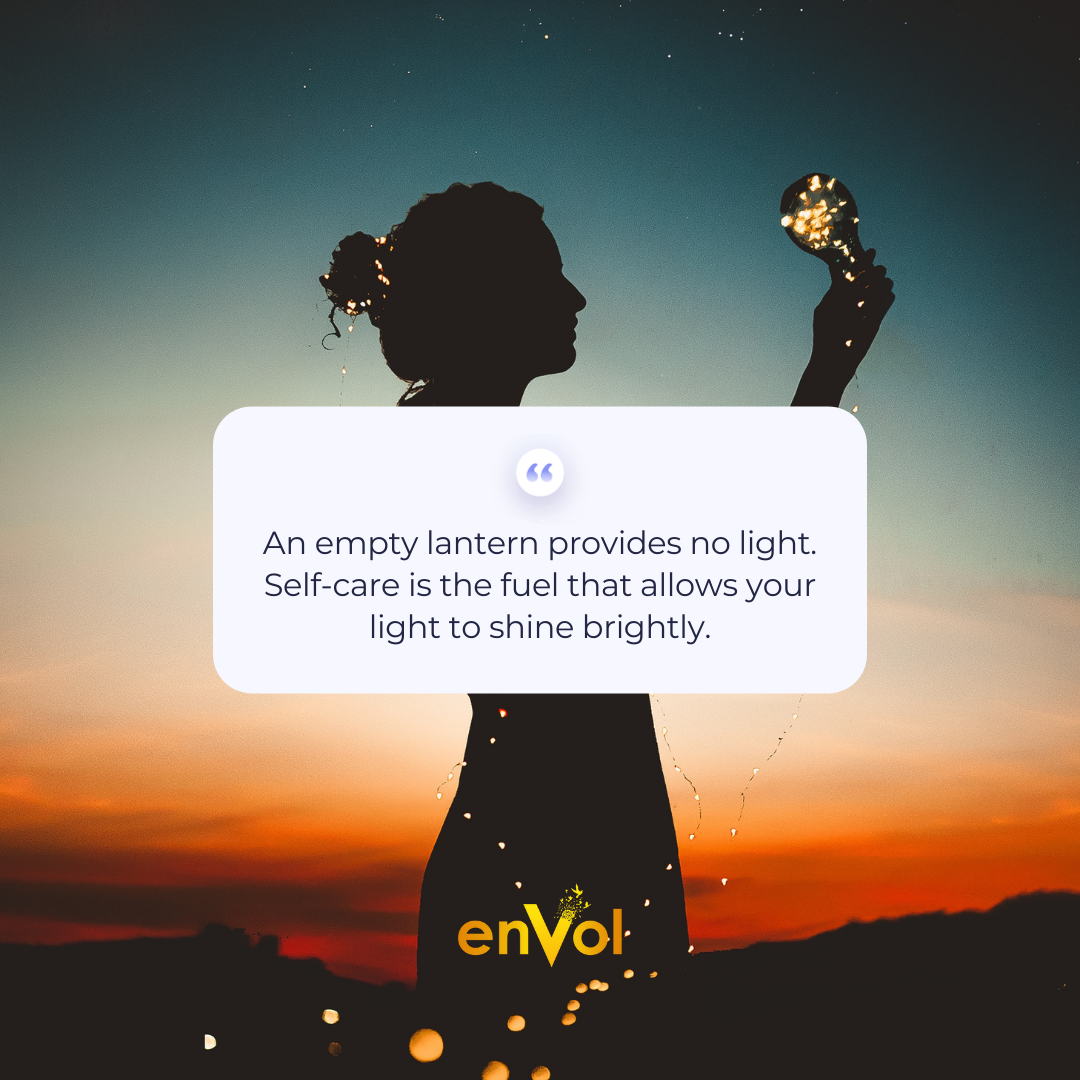If you’d like to foster a greater sense of self-love, as well as better mental health in general, using positive affirmations can be wonderfully effective. But before we explore affirmations for self-love, let’s first get a handle on what exactly is meant by "self-love".
Affirmations for self-love:
- What is self-love?
- What are positive affirmations?
- How to practice daily affirmations
- How to ensure success with affirmations
- The science behind positive affirmations
- Self-love affirmations to change our negative self-talk
- Self-care is self-love
1. What is self-love?
Self-love is the practice of being grateful for ourselves. More specifically, it is a state of appreciation stemming from actions supporting our entire wellbeing; this includes the physical, psychological and spiritual aspects of ourselves.
Action is a key word here since we largely derive our sense of self-worth through actionable steps: the different ways in which we take care of ourselves, and what one might call self-care practices.
Self-love can look like many different things to different people. For example, it can mean:
- Using positive self-talk.
- Speaking to yourself as you would a best friend.
- Setting healthy boundaries with people.
- Celebrating your achievements.
- Forgiving yourself if you treat yourself poorly.
- Making time for rest and self-care.
- Trusting your gut instincts.
- Allowing your talents to shine.
Self-love is a movement towards unconditional self-acceptance. It requires you to be gentle with yourself; to recognise that you are worthy of love, right here, right now, just as you are in this moment, even with all your imperfections and shortcomings.
So, how can we go about improving our self-love? Introducing positive affirmations is one great way to do so!
Let’s break down exactly what positive affirmations are, and how to use them to invite feelings of self-love and compassion.
2. What are positive affirmations?
Their name provides a good indication. Simply put, positive affirmations are just that: they are short, positive statements designed to motivate and encourage you. When repeated frequently, they can yield a host of benefits. To use affirmations effectively it's important you use the word 'I' and ensure they are positive.
Ultimately, if you struggle with low self-esteem or confidence, implementing a daily affirmation practice can be a fantastic tool. It can help you replace destructive thinking patterns with more constructive ones, allowing you to foster a greater sense of self-love.
3. How to practice daily affirmations
There are many different ways to practice affirmations. Ultimately, it depends upon what method resonates with you; whether your learning type is verbal, visual, or auditory.
Many choose to go the traditional route and put pen to paper, writing out their chosen affirmations. You could also choose to say the affirmations in your head as you write them.
Another great way is to recite them aloud to yourself, as you get ready for your day.
This study from 2013 showed that saying or writing down affirmations can help foster a deeper sense of belonging in school for students, leading to improved grades.
For those who are more visual by nature, affirmation cards are a great way to practice affirmations. If this idea appeals to you, why not make your own positive affirmation cards? Luckily here at Envol, we’ve got you covered when it comes to all things affirmations! Whether you’re looking to promote a greater sense of self-love, or aspire to call in more abundance and success into your life, the affirmations category in our toolbox provides the ultimate source of inspiration.
Simply select your desired affirmation category and you’ll see an array of uplifting and empowering affirmations on your chosen topic. The Envol toolbox features a large library of affirmation topics with themes such as Self-love, Gratitude, Health, Abundance, Success, Forgiveness, and Good Morning, so there is no shortage of inspiration!
Grab a small notepad, scissors, and a pen and get scribbling. Now you have the perfect pocket-sized version of your favorite affirmations for when you’re on the move!
While there are no strict rules for timing and frequency, it can be very helpful to repeat your affirmations regularly. This is because the repetitious aspect can influence the subconscious mind into positive action.
In terms of when to go about practicing them, first thing in the morning and last thing at night are ideal times to do so. This is because right after you wake up and right before you fall asleep, the conscious mind is not as active. At these times the subconscious mind is generally more receptive to reprogramming.
4. How to ensure success with affirmations
Bear in mind that writing down or saying your affirmations is only one part of the process. This is a detail missed by many, and the reason why some experts on affirmations, like Louise Hay, claim affirmations fail to work for people.
A pioneer in the self-help field and author of the international bestseller You Can Heal Your Life, Hay writes:
"Affirmations are like seeds planted in soil. Poor soil, poor growth. Rich soil, abundant growth."
In other words, your affirmations are only as good as your mindset. If you truly want to become a more positive person through self-affirmative thinking, you need to work on changing your overall attitude towards life. It’s simply not enough to just generically reel off repetitive positive statements; you need to work on consistently instilling new habits and behaviors. As Hay points out:
"The more you choose to think thoughts that make you feel good, the quicker the affirmations work [...] Your life won’t turn around overnight, but if you’re consistent and make the choice on a daily basis to think thoughts that make you feel good, you’ll definitely make positive changes in every area of your life."
Ultimately, saying affirmations is one thing, but believing in them and really embodying their energy is where the real magic starts to happen!
5. The science behind positive affirmations
While you might easily be forgiven for assuming affirmations are just another New Age buzzword with little to no scientific basis to them, the concept of positive affirmations actually rests on a firm psychological and scientific foundation.
In fact, one of the most established theories about positive affirmations dates back to the 1980s, in what is known as the "self-affirmation theory" developed by Claude Steele, a Professor of Psychology at Stanford University.
According to this theory, the process of self-affirmation is activated by threatening information that confronts or threatens our sense of internal adequacy or integrity. In other words, our sense of self-integrity: the conception we hold of ourselves as good, virtuous, moral people, as dictated by cultural and societal norms. An example of this might be trying to maintain the image of “being a good student” or “being a good wife or husband”, etc.
The idea behind self-affirmation theory is that by telling ourselves or affirming what we believe in positive ways, we can protect ourselves from these threats and maintain our sense of self-integrity. In other words, positive affirmations are more about coping with the threat to our self-image, than coping with the threat itself.
While this all sounds great in theory (no pun intended), is there empirical evidence to prove that positive affirmations actually work?
Let’s take a look at the science.
The development of self-affirmation theory has given rise to studies in the realm of neuroscientific research, aimed at discovering if physical changes can be seen in the brain when we self-affirm in positive ways. The results of a 2016 study revealed that there are several neural pathways whose activation increases when people practice self-affirmation tasks.
To go into further depth, the ventromedial prefrontal cortex is an area of the brain responsible for processing self-related information and values. MRI scan evidence revealed this area became more active in the group who practiced self-affirmations. This supports the idea that affirmations are all about how we form or reinforce our positive identities. This same study also demonstrated that a reduction in feelings of anxiety was seen in those who practiced affirmations.
Despite its undeserved reputation as a new-age fad, there is actually a staggering amount of research on this topic. Here are just a few examples of empirical evidence from studies revealing the multiple benefits of practicing self-affirmation:
- Self-affirmations can improve our ability to solve problems under stress. (2013 study)
- Self-affirmation has been demonstrated to lower stress levels and decrease the tendency to linger or ruminate on negative experiences. (2007 study)
- Self-affirmations have been shown to decrease health-deteriorating stress. (2014 study)
- Self-affirmations can make us less likely to dismiss harmful health messages, responding instead with the intention to change for the better and to eat more fruits and vegetables. (2008 study)
- Practicing self-affirmations has shown positive results in coping with obesity.(2011 study)
- Short self-affirmation sessions before a stressful or high-pressure event can help calm our nerves. It can also increase our confidence, along with the odds of having a successful performance. (2015 study)
Now that we’ve got some tangible proof that affirmations aren’t just fluffy words that sound nice, let’s get to practising some self-love affirmations!
6. Self-love affirmations to change our negative self-talk
Here at Envol, we recognize how crucial self-love is for your wellbeing, which is why have we dedicated an entire category of affirmations on this topic.
Choose to devote a few minutes each day to changing what is often an automatic, negative narrative, and watch yourself transform!
The next time you catch yourself running a negative internal dialogue, try repeating some of these positive affirmations:
- Today, I choose me.
- My body is beautiful and expresses my spirit.
- I am accepting myself unconditionally.
- I choose to not judge myself or others.
- I release the need to prove myself to anyone.
- I choose to stop apologizing for being me.
- I love every facet of my existence.
- I am proud of myself. I choose myself.
This is just a taste of the dozens of affirmations we have on the Envol app, so why not check them out? Give yourself the love you’ve always deserved!
7. Self-care is self-love

Making time for self-care is integral to developing a greater sense of self-love.
Too often, we are made to feel as though doing so is a selfish act. This couldn’t be further from the truth. In reality, taking care of yourself is essential as a foundation for taking care of others.
Fortunately, Envol offers you many tools to help you incorporate little moments of self-care into your day, even if you’re pressed for time.
We all know how important a good morning routine is for setting us up to have a great day! What better way to start your day than by taking some time just for yourself. Before your world gets busy, why not listen to our Perfect Morning meditation? You can’t pour from an empty cup, so ensuring you prioritise yourself first thing in the morning, is a wonderful way to bring some self-care into your day! One Envol user writes:
"I needed this so much this morning, was feeling hopeless and didn’t want to get out of bed, shifted my perspective, just enough to overcome the depression and greet the day with gratitude."

Ideal for when you’re short on time, our 3-minute Moment for myself meditation is the perfect pick! For those times when you’re feeling frazzled and overwhelmed and you just need a minute (or 3) to yourself, this track gifts you a quiet moment just for you, allowing you to find your center and relax:
“I love this one. It’s perfect for me when I get overwhelmed with busy mornings. It brings me back to the present and helps ease anxiety. Love that there are shorter times on this app! Very helpful."

Last but not least, our 3D Sound Journey Self-care evening, provides the ultimate self-care treat. When you’ve had a long day and want to shut the world away, look no further. Immerse yourself in this incredible 3D experience, as you indulge and pamper yourself in a warm, candlelit bubble bath. Allow the sounds of a crackling fireplace and the relaxing sounds of rain to melt all your stress away:
“Definitely my favourite. The sounds are so soothing and relaxing!”

Takeaway
The words you choose matter. They have tremendous power, not only in helping you shape the future you wish to create but in shaping your perception of how you see yourself. Affirmations can be powerful tools in enabling you to live your best life possible. If you’re looking to cultivate a greater sense of self-love, implementing a daily affirmation practice is a great place to start! The best part? It’s completely free!
“To be beautiful means to be yourself. You don’t need to be accepted by others. You need to accept yourself.” ~ Thich Nhat Hanh
Want to explore more health and wellness content? Read some of our other amazing articles below:




